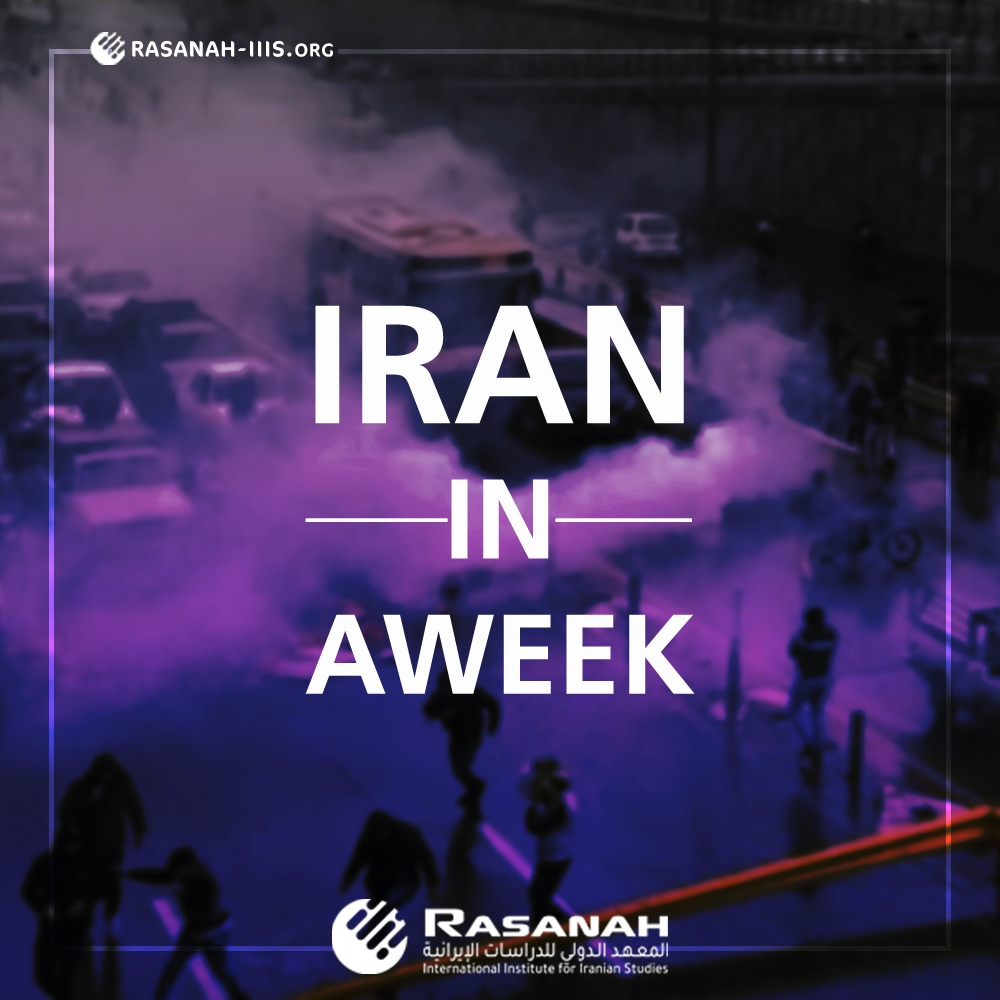

According to Public Opinion, Pulling out of the NPT will Make Iran Appear Like North Korea
Iranian Foreign Minister Mohammad Javad Zarif has threatened that Iran will pull out of Non-Proliferation Treaty (NPT), if its nuclear case is referred to the UN Security Council. The editorial of Jahan Sanat explains why this dangerous move if taken, will make Iran look like another North Korea.
To analyze the issue of Iran’s possible exit from the NPT, two questions must be answered. First, what is the significance of raising this issue now?
The Iranian Foreign Minister Mohammad Javad Zarif, who is both educated and experienced, made this threat. The truth is if other people made these threats, we could say that they are not representatives of the country’s diplomatic apparatus. But when it is Zarif who says such a thing, it is more surprising.
The second question is: what will be the outcomes of this threat? Logically, any move that pushes Europe towards America in the nuclear file is to Iran’s disadvantage. This threat will certainly do so. In the beginning of the nuclear deal, Europe was standing by Iran and there was a big gap between Europe and America. Now the British Prime Minister Boris Johnson is talking of replacing the nuclear deal with Trump’s deal.
Furthermore, Iran made the threat, while knowing that the Europeans are not capable of doing much. As we saw during the past 8 months, they couldn’t remain committed to their obligations in activating INSTEX.
The threat made by Zarif or by the speaker of the parliament Ali Larijani has no result, except helping America to achieve its goal – which is forcing Iran to quit the nuclear deal. With Iran pulling out of the NPT, the world’s public opinion will perceive Iran as another North Korea and a threat against the world.
Finally, this approach will mobilize the world against Iran, ending in activating the “trigger mechanism” in the nuclear deal. This will revoke UN Resolution 2231, resulting in the return of international sanctions on Iran.
How Much Longer Can Iran’s economy Tolerate US Sanctions?
The editorial of Jahan Sanat deals with the impact of US sanctions on Iran’s economy, as well as on livelihoods and businesses.
US officials know that more sanctions will result in businesses and livelihoods deteriorating for millions of Iranians. More sanctions will make Iranians – particularly low-income families –angry, which is exactly what US officials are looking for.
The truth is that US sanctions have already resulted in frustration and hopelessness. People and economic actors ask to what extent can Iran’s economy continue to deteriorate. Perhaps senior economic, social, and political leaders have an accurate assessment of society, which is why they think it is possible to continue in this situation, without making any changes to their strategy.
But if they do not have any impartial statistics in this regard and are just depending on a sense of loyalty, they ought to act more accurately and try to save businesses and the Iranian people. To assess the tolerance level of Iranian citizens vis-à-vis economic pressures, more accurate and scientific methods and polls must be used.
What is more, people have the right to know about sanctions and how much longer they are going to continue. Government organizations and other institutions that run the country must give hope to the people, but it must be based on facts so that people don’t lose their trust. Also, citizens must have hope that the extent and depth of US sanctions will reduce day by day.
We must keep in mind that when the economy gets smaller, it might not result in a sudden death, but it will weaken the foundations and structures of the economy.
It is good to remember that once Iran’s economy was as good as Turkey and South Korea. But today Iran’s national production is far less than South Korea and the gap with Turkey keeps widening.
Do not Destroy the Republic!
As we get closer to the parliamentary elections in Iran, the Guardian Council has widely disqualified candidates, even former and current lawmakers. The editorial of Mostaghel sees this as endangering the Iranian republic.
The issue of elections, particularly during the past two decades, has always been controversial among political factions in Iran. The most challenging issue is that of “approbation supervision” according to which every two years the Guardian Council can eliminate those individuals that are not approved by the council for the elections.
This process of elimination has frustrated many people, and many believe that if their favorite candidates are disqualified, they will not partcipate in the elections. What is more, many officials in the executive and legislative branches of the government are against the eliminations made by the Guardian Council, seeing it as against the constitution. They believe that under such circumstances, people have no motivation to participate in the parliamentary elections.
Interestingly, in each election the Guardian Council disqualifies even some of those who were qualified in the previous elections. This council has proved that it backs the conservative faction and wants only their representatives to be present in the parliament.
Recently, Iranian President Hassan Rouhani slammed the disqualification of candidates by the Guardian Council, saying that “the country cannot be run by only one faction.” The spokesperson of the council Abbas Ali Kadkhodaei immediately reacted to Rouhani’s remarks, calling them “regrettable.”
For the time being, people like Kadkhodaei are in charge, and there is not much that the Iranian president elected by the people can do about it. In fact, people like Kadkhodaei have intentionally or unintentionally targeted the republic that will end in its destruction.
As it is, it shouldn’t be expected that people will vote for candidates favored by the Guardian Council. What is important is that the Guardian Council spokesperson is appointed, and not elected by the people, while the president and parliament representatives are directly elected by the people.
The Fallout Resulting From Unmeasured Words
The Mashhad Friday prayers leader Alamolhoda in this week’s sermon said that the UK ambassador to Iran should have been “cut into pieces” for taking part in the ceremony held for victims of the passenger flight downed by the IRGC. The editorial of Mardomsalari deals with the consequences of such remarks for Iran’s national interests.
If those who are active in politics practically and theoretically paid more attention to the political weight of their own words, then they would have paid more attention to what they said. They are either unaware of the consequences of their words or make such remarks intentionally. Either way they are imposing high costs on the country by what they say.
Alamolhoda saying that one of the British ambassador must be chopped to pieces is an example of such unmeasured words.
When there is an official institute to deal with violations of ambassadors and foreign diplomats in the country, why should others say things that will only cause tensions and damage? What is more, consulate and diplomatic conventions have provided the necessary framework when dealing with such violations such as summomning diplomatic staff or expelling them. When there are logical, diplomatic, less costly ways to deal with such violations, so why should such costly unorthodox language be used?
Alamolhoda’s words harm Iran’s national interests and its international status in various ways. It means that he and people like him don’t think that their remarks have consequences and they say whatever they want to without fear of being held accountable.
These people would stop damaging the country by making such remarks if they new that their words carry heavy consequences. If only those who hold public posts could be held accountable for their irresponsible remarks as the consequences are harmful to Iran’s national interests.

Economic Institutions Under Khamenei to Enter the Stock Market
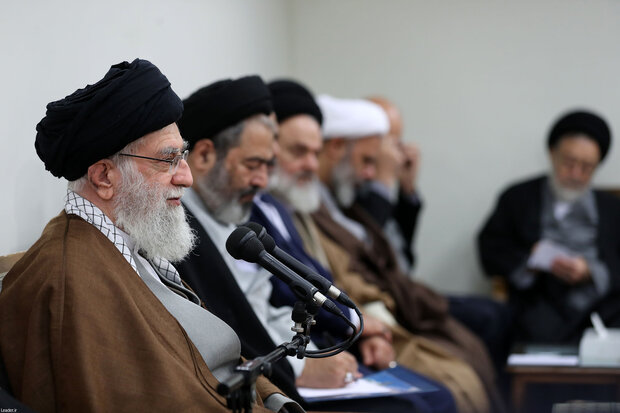
Mohammad Javad Iravani, deputy of supervision and audit at Ali Khamenei’s office, has said the economic institutions which are under the supreme leader’s supervision will enter the stock market.
Iravani added that there has been some coordination with the economy minister in this regard to “expedite the presence of these institutions in the stock market.” He also supported the performance of economic institutions under Khamenei’s supervision, saying these institutions take “special measures” by their own initiative, a part of which is in response to the US sanctions.
He pointed out that the “revolutionary institutions have done idiosyncratic activities” in reponse to US sanctions but “we cannot talk about them.” As an example, Iravani referred to Iran’s steel industry “which was monopolized by two places” and it did not suffer any losses after the U.S. sanctions, thanks to the institutions under the supreme leader’s supervision.
Mohammad Javad Iravani also mentioned that the share of the institutions under the suprmee leader’s supervision in the national economy is less than eight percent.
However, Behzad Nabavi, a “reformist” politician, had previously said that 60 percent of Iran’s national wealth is in the hands of four institutions, including the Execution of Imam Khomeini’s Order (EIKO), Khatam al-Anbiya Headquarters, Astan Quds Razavi Foundation, and the Foundation of the Oppressed.
The first three are under the direct supervision of the Islamic Republic’s Supreme Leader Ali Khamenei and the fourth one is an IRGC subsidiary.
Zarif: If Iran’s Case Goes to the UN Security Council, We Will Get out of the NPT
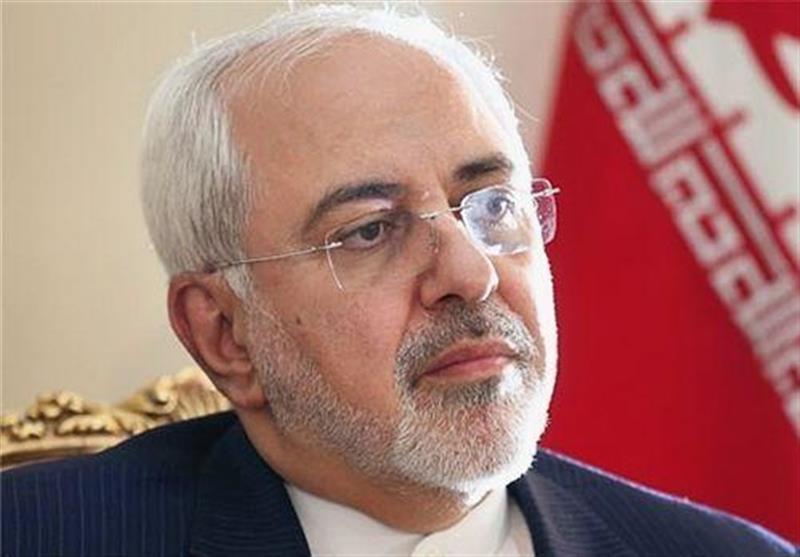
Iranian Foreign inisterMohammad Javad Zarif has threatened that Iran will pull out of Non-proliferation Treaty (NPT) if its case is sent to the UN Security Council. He said the remarks made by European countries in regards to the nuclear deal (JCPOA) lack legal justification, threatening that if they keep playing their “political games,” Iran will use its “different means”.
The NPT has been signed by many countries, and is at the center of global efforts to stop nuclear proliferation, and calls for existing nuclear arsenals to be destroyed.
The Iranian speaker of parliament Ali Larijani too had said earlier that if Europe “acts unfairly” with respect to disputes over the JCPOA, Iran will make a “serious decision” about its future cooperation with the IAEA.
Britain, France and Germany had earlier announced activating the so-called trigger mechanism in the JCPOA, which can eventually end in the re-imposition of UN sanctions on Iran. They have also stated that a comprehensive negotiation process with America for signing a new nuclear deal is the key to resolving Iran’s nuclear crisis –negotiations which would cover Iran’s missile program and its role in the Middle East.
Meanwhile, British Prime Minister Boris Johnson and French President Emmanuel Macron once again stressed their commitment to the nuclear deal with Iran, while emphasizing the necessity of having a long-term framework in order to prevent Iran from obtaining nuclear weapons.
Iran has already announced that it will take the fifth step in reducing its nuclear obligations, asserting that in this step, it will no longer observe any restriction on the number of its centrifuges.
Khamenei Says Those Who Protested the IRGC’s Downing of a Passenger Plane were ‘Deceived’
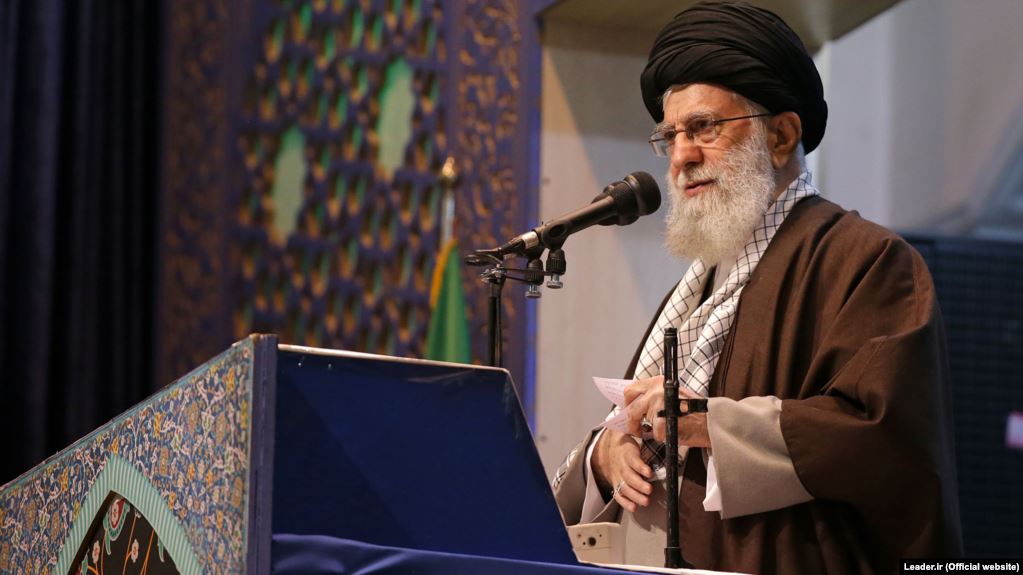
The Islamic Republic’s Supreme Leader Ali Khamenei has said those who staged protests after the IRGC shot down a passenger plane which left 176 dead were “duped”.
Several days after the Islamic Revolutionary Guards Corps downed a Ukrainian plane in Tehran’s suburbs, Khamenei delivered a speech as Friday Prayer Leader– his first during the past 8 years.
Ali Khamenei expressed his gratitude to the IRGC commanders for their clarifications in regards to the plane crash while asking Iranian authorities to follow up on the issue in order to prevent such incidents in the future.
He also said some individuals who were “guided by American radios and British TVs” tried to deal with this plane crash in a way so that the IRGC attack on US bases in Iraq and the funeral of the Quds Force Commander Qassem Soleimani remain in the backgrounded.
He called Soleimani “the strongest commander in the real sense of the word” and lashed out at the people who tore up his posters on streets during last week protests, asking: “Are the few hundred who insulted General Soleimani’s picture among the Iranian people or the several millions who participated in his funeral?”
Khamenei also berated those who chanted the slogan “Neither Gaza, nor Lebanon, my life for Iran”, calling them “deceived” while saying they have not sacrificed their lives and interests for Iran.
On a different note, Khamenei once again stressed that Iran would not negotiate with the United States, adding “we are not scared of negotiations.” He then expressed his distrust of European countries regarding the JCPOA: “After the US exit from the JCPOA, I said that I wouldn’t trust these countries and that they were at the service of America.”
80% Drop in Tourism After the Downing of a Passenger Flight
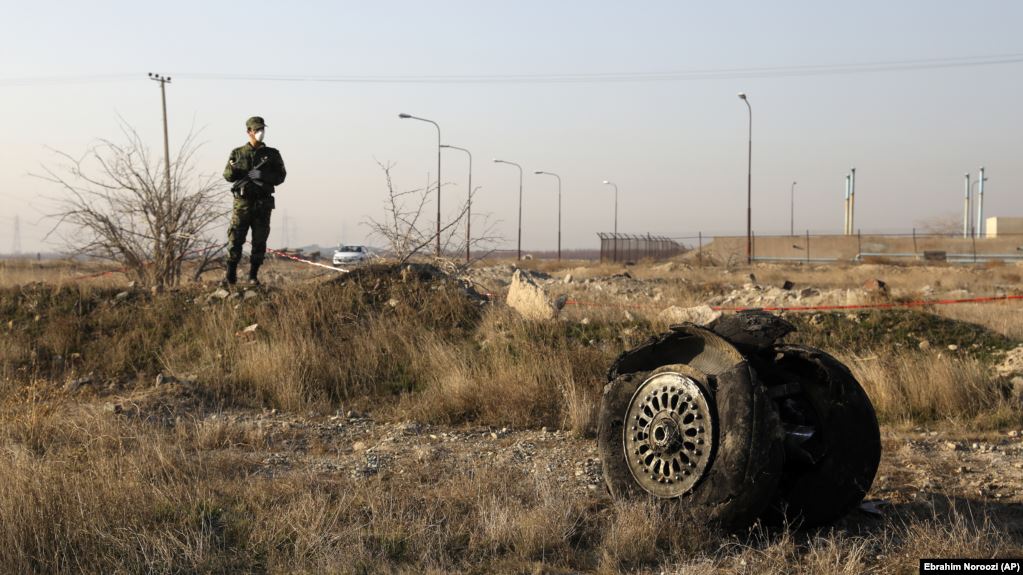
Downing the Ukrainian passenger flight by the IRGC’s missile has resulted in a severe reduction of tourism to Iran. Jafar Hamzei, head of Iran’s Hoteliers Association, has confirmed this issue, saying that initial studies show that more than 80% of reservations made by European and American tourists for the next couple of months have been cancelled.
He said cancelations are due to recent events in the country, but provided no further explanations. According to Hamzei, the cancellation of trips started after the price of gasoline tripled, as result of which hotels suffered huge losses due to domestic and foreign trips being canelled. Iran witnessed massive protests in November 2019 against gasoline price hikes, during which 1500 people were reportedly killed.
On January 8, an Ukrainian passenger plane was downed only 6 minutes after taking off from Imam Khomeini’s airport in Tehran. 167 passengers and 9 crew members were killed. Following this incident, many airlines have stopped their flights to Iran.
Iran’s General Staff of Armed Forces to Build 10 Refineries
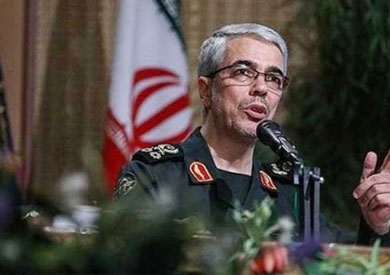
Saeed Mohammad, Commander of Khatam al Anbiya Construction Headquarters of the IRGC, said Iran’s General Staff of Armed Forces will enter the oil and petrochemicals field. He added that the General Staff of Armed Forces has suggested to the oil sector to obtain permits to build 10 petrochemical refineries.
Mohammad said that a joint team is to be formed by the Khatam al Anbiya Headquarters and Iran’s oil ministry to decide on where the ten petrochemical refineries are to be built.
Previously there was talk of reducing the presence of Iran’s armed force in the country’s economy.
Mohammad said with regard to the presence of Iran’s military in the economy that the issue is brought up by foreigners, and their supporters inside the country add fuel to it.
Many political figures including Ahmad Tavakoli, the principlist member of the Expediency Discernment Council, and MP Ali Motahari have strongly criticized economic activities carried out by military institutions.
According to Saeed Mohammad, Khatam al Anbiya Headquarters now works on 285 projects all over the country, and wouldn’t accept any project that was less than 150bn tomans.
